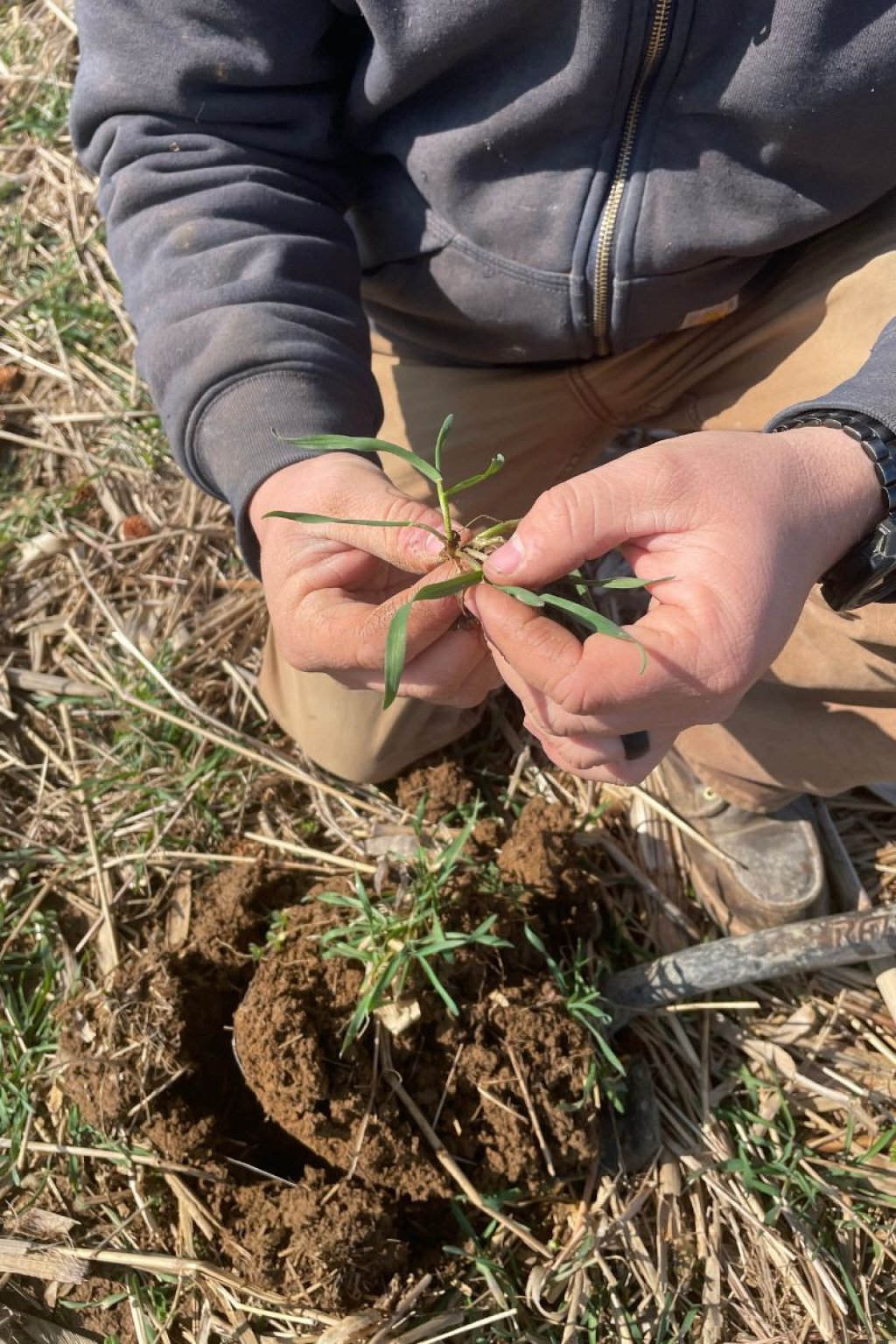Meeting Farmers in the Field: Scouting for the Kentucky Rye Project
I recently spent time traveling and visiting Kentucky farmers growing rye as part of American Farmland Trust’s (AFT) Kentucky Cereal Rye Cover Crop Initiative. There are currently 15 farmers participating in the project for the 2025 crop year.
I was fortunate to meet with 11 out of the 15 farmers that are participating in the project in crop year 2025 and to scout 14 of the 15 fields where a cereal rye crop was seeded last fall. The biggest takeaway from my lengthy conversations with these farmers as we walked their fields together is the enthusiasm for the potential to integrate another cash crop into their rotations and the impact that rye could have for the increased profitability of their farms. Kentucky rye farmers are excited about the opportunity to sell a high-quality grain product to local distilleries or maybe as cover crop seed to an area farmer. In addition, many of the farmers are looking forward to creating another revenue stream from the cereal rye crop by baling the rye straw after harvest and selling the straw to local farmers and horse farms, for which there is significant local demand.
Besides the economic impact, the prospect of protecting the soil and building soil health is appealing to farmers, especially those impacted by recent floods. It was evident during my visits that overwintering cereal rye crops can significantly reduce soil erosion, the formation of ephemeral gullies, and the loss of nutrients in agricultural fields. Just two weeks prior to my late February farm visits, parts of Kentucky had experienced significant amounts of flooding from heavy rain that fell over 2-3 days. It was very noticeable that fields that had a live, growing cover had much less erosion and ephemeral gully formation than fields that had only minimal residue left from last year's crop. With the heavy rain and flooding that occurred in early April, I am sure that problem has only been exacerbated.
I am excited for AFT’s Agriculture Conservation Innovations (ACI) team to continue enrolling more farmers in the project and expanding cereal rye acreage across Kentucky. In addition, we will be working to quantify the economic and environmental outcomes of integrating rye into the crop rotations. Both farmers and end-users of rye grain—often Kentucky distillers—are interested in understanding the sustainability and regenerative potential of rye production and the significant additional value that it can bring.
If you are interested in participating in the Kentucky Cereal Rye Cover Crop Initiative or would like to learn more about bringing cereal rye back to Kentucky, email [email protected].
###
American Farmland Trust is the only national organization that takes a holistic approach to agriculture, focusing on the land itself, the agricultural practices used on that land, and the farmers and ranchers who do the work. AFT launched the conservation agriculture movement and continues to raise public awareness through our No Farms No Food® message. Since our founding in 1980, AFT has helped permanently protect over 8 million acres of agricultural lands, advanced environmentally sound farming practices on millions of additional acres, and supported thousands of farm families.






